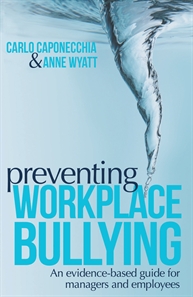Mean Business
Workplace wellbeing: the low hanging fruit
2 Comments
This week is National Psychology Week, and as part of awareness activities that are going on, psychologist Simon Brown-Greaves wrote an article for hrdaily titled “Empower managers to boost employee wellbeing“. I can’t directly link to hrdaily here, but it is free to subscribe.
One of Brown-Greaves’ ideas that attracted me concerned the idea that staff wellbeing is a straightforward physical affair:
People think that putting a bowl of fruit in the tea room is a wellbeing initiative. They make it too simple, and think that it’s all about eating, drinking and breathing right, when in fact that stuff really is not going to cut it as a wellbeing program.
He goes on to outline some of the initiatives that organisations should be focusing on for wellbeing, including better feedback, communication and consultation, role clarity, support, and acknowledging good work. In other words, all the psychological stuff. Well, who would have thought..!
Workplace wellbeing has become a bit of a buzz issue of late, and it tends to be operationalised, as Brown-greaves notes, with physical wellness: exercise and fitness programs, sports days/lunch competitions, yoga and pilates classes, provision of fresh and healthy snacks and drinks. Of course it should be obvious that wellbeing is a far wider concept than that. Psychological wellbeing is at least equally affected by the way work is organised (through stress, bullying, overwork, fatigue, motivation, rewards, comittment, achievement.. the list goes on) as physical health is affected by the way work is organised (posture, shift times, food availability, lighting ventilation etc). “Psychological issues” as they are sometimes called are often only dealt with by outsourced counselling through an employee assistance program (EAP). EAPs are important and very necessary in some circumstances. But some issues can be solved without counselling of individuals (as in the issues raised above), and this is where the organisational psych’s need to be acting. In essence here I’m arguing that our notion of what is “psychological” needs to be wider – it’s not just mental health, it is relevant in every part of our lives. (I’m still an enthused young psych student at heart!)
Physical wellness/wellbeing is the low hanging fruit, and its an easy way to put a positive spin on some potentially negative consequences of work.
It’s sad that we still don’t understand that our assumed distinction between what’s “physiological” and what’s “psychological” is a bit silly: they are just labels for different levels of focus. Everything psychological has a physical base. So it’s real. It has real consequences.
Solving such issues is not as easy as buying a fruit bowl or subsidising gym membership, because it involves subtle changes to how we work. But it’s totally worth the challenge.
I’d love to hear examples of any organisations developing truly comprehensive wellness/wellbeing programs.
I think I’ve now flown the flag for National Psychology Week.

